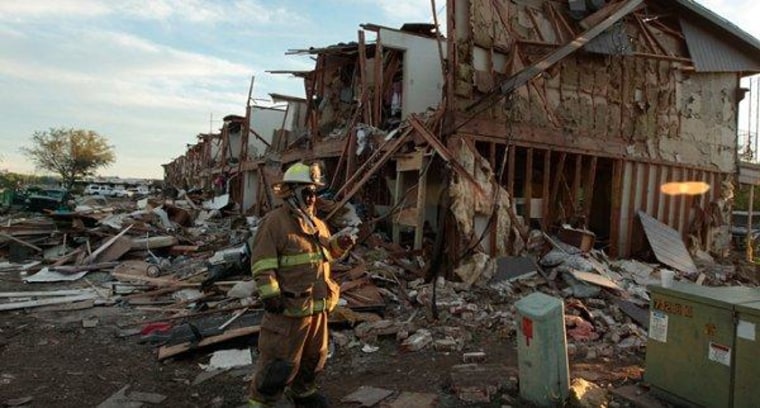It's been nearly a month since a fertilizer plant in West, Texas, exploded, killing at least 14 people, and injuring more than 200 others, while leveling a significant part of the small town. It's tempting to think, after a disaster of this magnitude, that the community and their officials would start asking some important questions about prevention and public safety.
And it'd be quite a list. There could, for example, be a conversation about the fact that the plant had no alarms, automatic shutoff system or firewall. There could also be a discussion about zoning laws that allowed a highly-explosive plant to be built across the street from two schools and a nursing home. It might also be time for a chat about liability insurance and environmental safeguards.
But none of these conversations is likely to happen.
This antipathy toward regulations is shared by many residents here. Politicians and economists credit the stance with helping attract jobs and investment to Texas, which has one of the fastest-growing economies in the country, and with winning the state a year-after-year ranking as the nation's most business friendly.Even in West, last month's devastating blast did little to shake local skepticism of government regulations. Tommy Muska, the mayor, echoed Governor Perry in the view that tougher zoning or fire safety rules would not have saved his town. "Monday morning quarterbacking," he said.Raymond J. Snokhous, a retired lawyer in West who lost two cousins -- brothers who were volunteer firefighters -- in the explosion, said, "There has been nobody saying anything about more regulations."
The New York Times piece included some remarkable details: Texas employers don't have to contribute to workers' compensation coverage; Houston has no zoning laws; and not only is there no state fire code, but local communities are prohibited from creating fire codes of their own. The legislature event killed a proposal to provide resources to train volunteer firefighters because lobbyists for the real estate industry disapproved.
As a consequence, Texas leads the nation in workplace fatalities and property damage resulting from explosions -- by orders of magnitude over other states.
In other words, the goal is to be "business friendly." If that means periodic deadly conflagrations, it's a small price to pay for attracting employers to the Lone Star State.
"Businesses can come down here and do pretty much what they want to," Texas Monthly's Paul Burka told the Times. "That is the Texas way."
